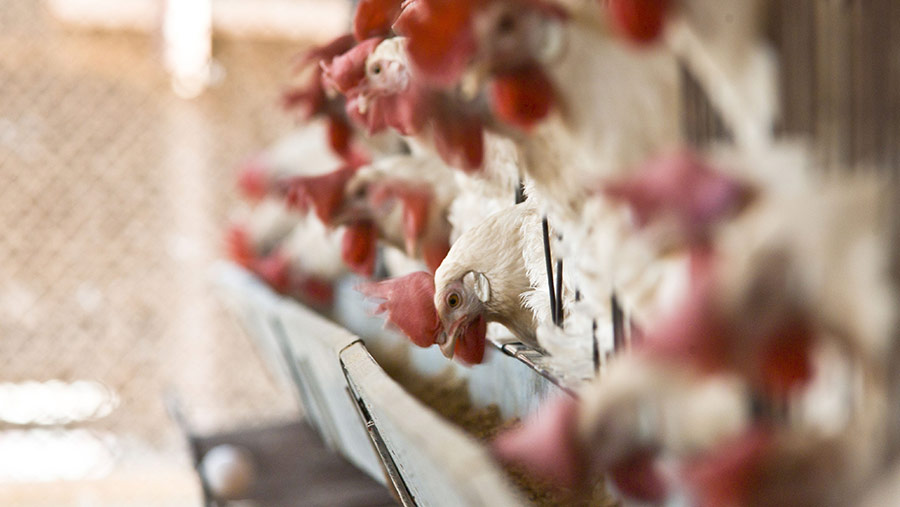Canada to phase out battery cages over next 20 years
 ©Best Shot Factory/Rex Shutterstock
©Best Shot Factory/Rex Shutterstock Egg farmers in Canada will phase out the use of conventional cages over the next two decades, their trade body has said.
It comes in the wake of sustained pressure from consumer groups on retailers and restaurateurs to commit to raising welfare standards in egg production.
Egg Farmers of Canada announced on behalf of the 1,000 farms it represents that a “co-ordinated, systematic and orderly” transition would now take place to phase out conventional cage systems by 2036.
See also: Costco recommits to ‘cage-free’ eggs in US
At present, about 90% of farms keep birds in conventional cages, also known as “battery units”. The group is proposing to have this total at 50% in eight years, 85% in alternative production in 15 years and, providing market conditions are favourable, 100% in enriched colony cages five years later.
Peter Clarke, chairman of Egg Farmers of Canada, said: “In response to the best available scientific research and in light of changing consumer preferences, I’m pleased that the entire industry has agreed to an orderly transition plan that will further diversify our production practices.”
‘Outrageous timelines’
While the move has been welcomed, some have suggested 20 years to phase out conventional cages is too long. Mercy For Animals, an animal rights organisation, said it was an “outrageous” amount of time to convert.
“It’s high time Egg Farmers of Canada stopped dragging its feet and addressed this important animal welfare issue,” it said in a statement.
“With cage-free commitments from nearly 100 major restaurants, retailers, food manufacturers and food service companies, it has never been clearer that the days are numbered for egg factory farmers who pack birds in cages so small they can’t walk, spread their wings or engage in other natural behaviours.”
The UK egg sector was given a little more than 10 years to convert its conventional cages to enriched colony units, a feat it achieved before the 2012 deadline. Industry estimates put the cost of coverting farms at £400m.
